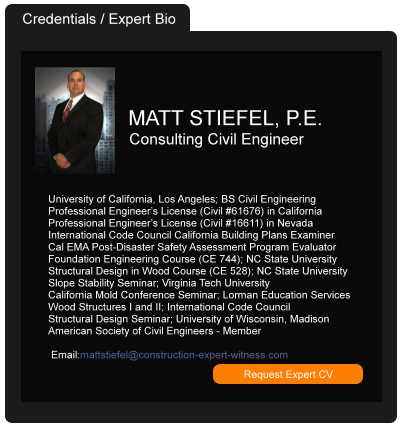Google’s Floating Mystery Boxes Solved?
March 12, 2014 —
Beverley BevenFlorez-CDJ STAFFGarret Murai, on his California Construction Law blog, reported how “a four story structure made up of shipping containers” had been mysteriously erected on a barge in the middle of San Francisco Bay. Later, it was determined that Google was behind the strange structure, though they were keeping silent as to what the building-on-the-barge would be used for.
Construction stopped after the San Francisco Bay Conservation and Development Commission determined that the mysterious barge required a permit—which would require Google to file “publicly available documents.” Google chose to move the barge to Stockton, California rather than obtain a permit.
Google finally released a comment stating that they are “exploring using the barge as an interactive space where people can learn about new technology.” However, Murai believes that this statement may be a “distraction device” and the true use of the barge has yet to be revealed.
Read the court decisionRead the full story...Reprinted courtesy of
Construction Legislation Likely to Take Effect July 1, 2020
April 27, 2020 —
Christopher G. Hill - Construction Law MusingsCoronavirus is dominating the news and planning for the effects of COVID-19 is a big deal for construction companies in the Commonwealth. However, these issues, though immediate, are not the only ones that have popped up here at the beginning of 2020. Several bills that I have been monitoring (here and here) have recently passed both the House of Delegates and the Virginia Senate and are on their way to the Governor for signature (a signature that is most likely going to happen in each case).
Among those bills that did not pass are a bill that would have eliminated right to work in Virginia and allowed so called “closed shops” as well as fair share fees legislation that would have required those that were not part of a union to pay certain portions of union expenses.
Read the court decisionRead the full story...Reprinted courtesy of
The Law Office of Christopher G. HillMr. Hill may be contacted at
chrisghill@constructionlawva.com
Federal Court Finds Occurrence for Faulty Workmanship Under Virginia Law
July 31, 2013 —
Tred Eyerly, Insurance Law HawaiiThe Federal District Court in Virginia found that allegations of faulty workmanship could arise from an occurrence. Nautilus Ins. Co. v. Strongwell Corp., 2013 U.S. Dist. LEXIS 79163 (W. D. Va. June 4, 2013).
Strongwell supplied certain fiberglass reinforced plastic materials to a subcontractor of Black & Veatch for a construction project at power plant. Black & Veatch subsequently sued Strongwell, claiming that numerous defects in Strongwell's materials and work were discovered after the project was completed. The complaint further alleged that as a result of the defects, there was widespread property damage to portions of the power plant.
Nautilus defended under a reservation of rights. Nautilus also filed suit for a declaratory judgment that to establish it had no duty to defend or indemnify Strongwell. Strongwell moved to dismiss the complaint insofar as it requested a declaration that there was no duty to defend. Strongwell also filed a motion to stay the coverage action until the underlying case was completed.
Read the court decisionRead the full story...Reprinted courtesy of
Tred EyerlyTred Eyerly can be contacted at
te@hawaiilawyer.com
Consequential Damages Can Be Recovered Against Insurer In Breach Of Contract
July 22, 2019 —
David Adelstein - Florida Construction Legal UpdatesIn a favorable case for insureds, the Fifth District Court of Appeal maintained that “when an insurer breaches an insurance contract, the insured is entitled to recover more than the pecuniary loss involved in the balance of the payments due under the policy in consequential damages, provided the damages were in contemplation of the parties at the inception of the [insurance] contract.” Manor House, LLC v. Citizens Property Insurance Corp., 44 Fla. L. Weekly D1403b (Fla. 5thDCA 2019) (internal citations and quotation omitted). Thus, consequential damages can be recovered against an insurer in a breach of contract action (e.g., breach of the insurance policy) if the damages can be proven and were in contemplation of the parties at the inception of the insurance contract.
In Manor House, the trial court entered summary judgment against the insured holding the insured could not seek lost rental income in its breach of contract action against Citizens Property Insurance because the property insurance policy did not provide coverage for lost rent. However, the Fifth District reversed this ruling because the trial court denied the insured the opportunity to prove whether the parties contemplated that the insured, an apartment complex owner, would suffer lost rental income (consequential damages) if the insurer breached its contractual duties.
Read the court decisionRead the full story...Reprinted courtesy of
David Adelstein, Kirwin Norris, P.A.Mr. Adelstein may be contacted at
dma@kirwinnorris.com
New Addition To New Jersey Court Rules Impacts More Than Trial Practice
November 16, 2020 —
Thomas Regan & Karley Kamaris - Lewis Brisbois NewsroomOn September 1, 2020, New Jersey adopted a brand-new rule of procedure, Rule 4:25-8, which properly defines motions in limine. On its face, the new rule prohibits, broadly, filing motions in limine that may have a dispositive effect on the case. Most notably, the rule expressly eliminates the ability to move, on motion in limine, to bar expert testimony in matters in which such experts are required to sustain a party’s burden of proof. This effectively makes the summary judgment phase of litigation the last chance to bar experts from a jury trial or take any other dispositive action
The new rule comes at a time in which the evidentiary standard for experts is shifting in New Jersey. In October 2018, the New Jersey Supreme Court reconciled the framework for analyzing the reliability of expert testimony under N.J.R.E. 702 and 703 in In re: Accutane Litigation. Significantly, New Jersey, a traditional Frye jurisdiction, incorporated certain federal Daubert factors for expert “use by our courts” but, overall, fell short of adopting the Daubert standard as a whole. In applying the relevant Daubert factors, the trial court in Accutane held that the subject experts’ methodologies were unsound due to the failure to apply fundamentals of the scientific method of the medical-evidence hierarchy. The decision resulted in the dismissal of over 3,000 claims.
Reprinted courtesy of
Thomas Regan, Lewis Brisbois and
Karley Kamaris, Lewis Brisbois
Mr. Regan may be contacted at Thomas.Regan@lewisbrisbois.com
Ms. Kamaris may be contacted at Karley.Kamaris@lewisbrisbois.com
Read the court decisionRead the full story...Reprinted courtesy of
A Primer on Insurance for Construction Projects
November 30, 2020 —
Garret Murai - California Construction Law BlogPeople who live in glass houses should have insurance (in addition to not throwing stones). So too should your construction project.
The risks inherent on a construction project are many and varied, ranging from property damage to personal injury to pollution remediation costs, and wise contractors and project owners know that one of the best ways to mitigate these risks is through insurance. So, here’s a primer on what you need to know about insurance on construction projects.
Commercial General Liability Insurance (CGL)
What it Covers:
- Property damage.
- Bodily injury.
- Personal and advertising injury (e.g., libel and slander).
Read the court decisionRead the full story...Reprinted courtesy of
Garret Murai, Nomos LLPMr. Murai may be contacted at
gmurai@nomosllp.com
Virginia General Assembly Tweaks Pay-if-Paid Ban
April 03, 2023 —
Christopher G. Hill - Construction Law MusingsLast year, the Virginia General Assembly passed into law a ban on the so-called pay-if-paid clauses, effective January 1, 2023. I shared my thoughts and concerns with the legislation as drafted at the time of its passage. During this most recent legislative session, and among some other construction-related bills, the General Assembly sought to clarify its past enactment.
The enrolled bill fills in certain gaps in the law as follows:
- For both private and public contracts, the General Contractor, if it has good reason to withhold any payment, now has a maximum of 50 days from receipt of a proper invoice to notify its subcontractor of the reason for the withholding, including the contractual noncompliance, the amount to be withheld, and the lower-tier subcontractor responsible for the contractual noncompliance.
- For private contracts, the Owner now has 45 days in which to provide any written notice of intention to withhold payment. This notice must include the specific contractual non-compliance and the dollar amount to be withheld. NB- Owners do not need to specify the subcontractor responsible for the non-compliance.
Read the court decisionRead the full story...Reprinted courtesy of
The Law Office of Christopher G. HillMr. Hill may be contacted at
chrisghill@constructionlawva.com
New Jersey’s Governor Puts Construction Firms on Formal Notice of His Focus on Misclassification of Workers as Independent Contractors
May 24, 2018 —
Kevin J. O'Connor & Joseph M. Vento - Peckar & Abramson, P.C.We have written quite a bit about the mounting threat to employers, both nationally and locally, of claims of misclassification of workers as independent contractors rather than employees. New Jersey’s new Gov. Phil Murphy signed an executive order last week that establishes a task force on employee misclassification to punish contractors who commit fraud by classifying their employees as independent contractors.
In the words of Governor Murphy: “I am signing this order to crack down on unscrupulous contractors who commit 1099 fraud to exploit workers and rob them of family and medical leave and safe workplace protections that the law provides,” Murphy said. “The employer gives themselves an unfair business advantage and this practice is illegal. This is a question of enforcing what is already on the books.” He has vowed that any employer caught misclassifying workers will either be brought into compliance or put out of business. The task force will foster compliance with the law and conduct a comprehensive review of existing practices.
Reprinted courtesy of
Kevin J. O'Connor, Peckar & Abramson, P.C. and
Joseph M. Vento, Peckar & Abramson, P.C.
Mr. O'Connor may be contacted at koconnor@pecklaw.com
Mr. Vento may be contacted at jvento@pecklaw.com
Read the court decisionRead the full story...Reprinted courtesy of


































































